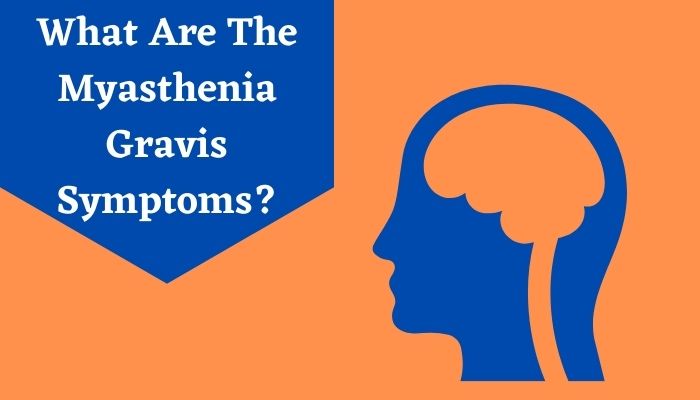Arun is a fitness freak who always practices high-intensity exercises. However, he got tired and experienced weakness of muscles, which resulted in severe discomfort. He immediately visited a nearby clinic for diagnosis, and doctors told him that he was suffering from Myasthenia Gravis symptoms. Currently, he is undergoing treatment for the problem and recovering well.
Everyone should keep their muscles in good condition, failing which may lead to potential threats. This is because overuse of muscles can result in some complications that require medical attention. Therefore, it is necessary to avoid over-exercising and activities to lead a healthy lifestyle. Several factors will influence muscle weakness problems, and people should prevent their muscles from excessive use.
What Is Myasthenia Gravis?
Myasthenia Gravis is a neuromuscular disease that leads to weakness in the skeletal muscles that worsen throughout the day. Not only that, the muscles will become tired and weak, which can affect the quality of life. It is an autoimmune disorder that affects communication between nerves and muscles. Women who are younger than 40 and men older than 60 are likely to suffer from the Myasthenia Gravis Symptoms.What Are the Causes of Myasthenia Gravis?
Myasthenia Gravis is an autoimmune disorder that develops when the body’s immune system attacks itself. The immune system can find and destroy any unwanted invaders that help overcome unwanted complications. An autoimmune disease is primarily caused by the circulation of antibodies in the blood, which attacks healthy tissues and cells by mistake.The antibodies will block or destroy muscle receptor cells when it comes to MG. This will result in fewer available muscle fibers that affect the contraction of muscles. As a result, a person may become weak and tired, which results in various symptoms. Not only that, some medications and genetic factors can influence MG. It is wise to know the underlying causes of the disorder before selecting a treatment.
Top 7 Signs and Symptoms of Myasthenia Gravis
It is vital to know Myasthenia Gravis signs and symptoms from different sources that will help choose a treatment depending on them. The condition may affect any of the muscles that will result in discomfort. Moreover, it will attack certain muscle groups more than others.Some of the symptoms of MG include:
- Trouble walking
- Drooping eyelids
- Double vision
- Limb weakness
- Difficulty in swallowing
- Troubles in chewing
- Impair speaking
Diagnosis for Myasthenia Gravis
Patients who suffer from Myasthenia Gravis should undergo some diagnostic tests to confirm the symptoms. A healthcare provider will perform a physical exam and evaluate the condition with certain tests.- Ice Pack Test: This myasthenia gravis diagnosis test is mainly designed for people who have severely drooping eyelids. A healthcare provider will place ice packs on the eyes for a few minutes.
- Antibody Test: Antibody test is another diagnostic procedure that helps to detect the symptoms of myasthenia gravis. On the other hand, the test doesn’t provide the exact results in less than 10% of patients who have MG.
- Imaging Scans: A patient should undergo imaging scans such as a CT scan or MRI to check for gland problems like tumors.
- EMG: An electromyogram (EMG) is another test meant for patients that measures the electrical activity of muscles and nerves. This procedure provides ways to detect communication problems between the muscles and nerves.
- Edrophonium Test: It is a drug test meant for patients which involves the intervention of Tensilon drug. A patient should perform muscle movements under the supervision of a doctor to detect the symptoms.
Top 4 Treatment Options for Myasthenia Gravis
1. Medications
A physician will recommend medications for treating myasthenia gravis to suppress the immune system. Corticosteroids and immunosuppressants are some types of medications used for minimizing the abnormal immune response. In some cases, doctors will suggest cholinesterase inhibitors for increasing communication between muscles and nerves.2. Removal of the Thymus Gland
The thymus gland is a part of the immune system that can induce MG in some patients. Therefore, a doctor will recommend the removal of the thymus gland, which helps lower muscle weakness. At the same time, this procedure is not recommended for all patients, and a doctor will perform the treatment only after evaluating their conditions.
3. Plasma Exchange
Plasma exchange is another treatment recommended for myasthenia gravis disease, which aims at removing harmful antibodies from the blood. This, in turn, gives ways to significantly improve the strength of muscles. It is a short-term treatment that will be helpful before surgery.
4. Intravenous Immune Globulin
Intravenous immune globulin is a procedure used for treating autoimmune MG symptoms by collecting blood from donors. The primary advantage of this procedure is that it gives ways to prevent the creation and function of antibodies that cause MG.
Tips to Reduce the Symptoms of Myasthenia Gravis
Anyone who wants to reduce the symptoms of myasthenia gravis should follow some steps that will help accomplish goals to a large extent. First, one should get plenty of rest after doing strength training and rigorous activities. This will help minimize muscle weakness with high success rates. Stress can lead to various problems in life, and people should know how to manage the same from different sources.Applying cold compresses to the neck and forehead can reduce extreme heat conditions. It is important to add plenty of proteins and carbohydrates to a diet plan which helps increase energy levels effectively. Taking naps or rest breaks will help prevent muscle contraction and weakness. While performing a strength training program, one should work with a trainer to minimize the overuse of muscles and other problems.



